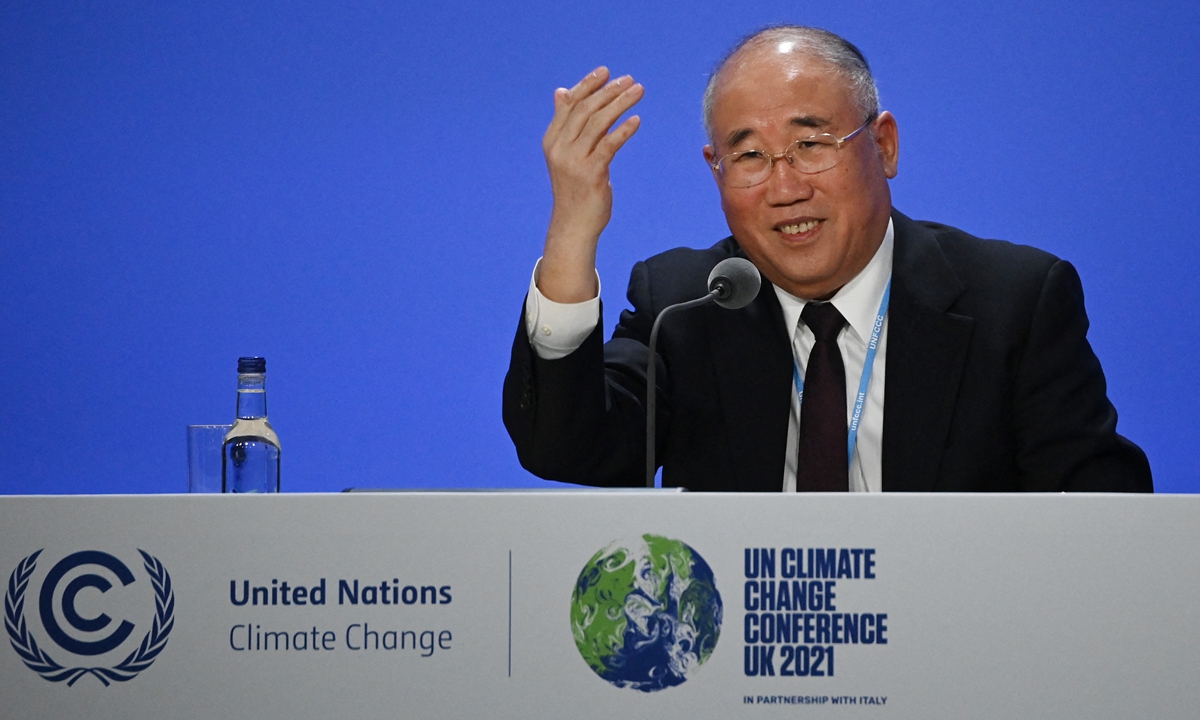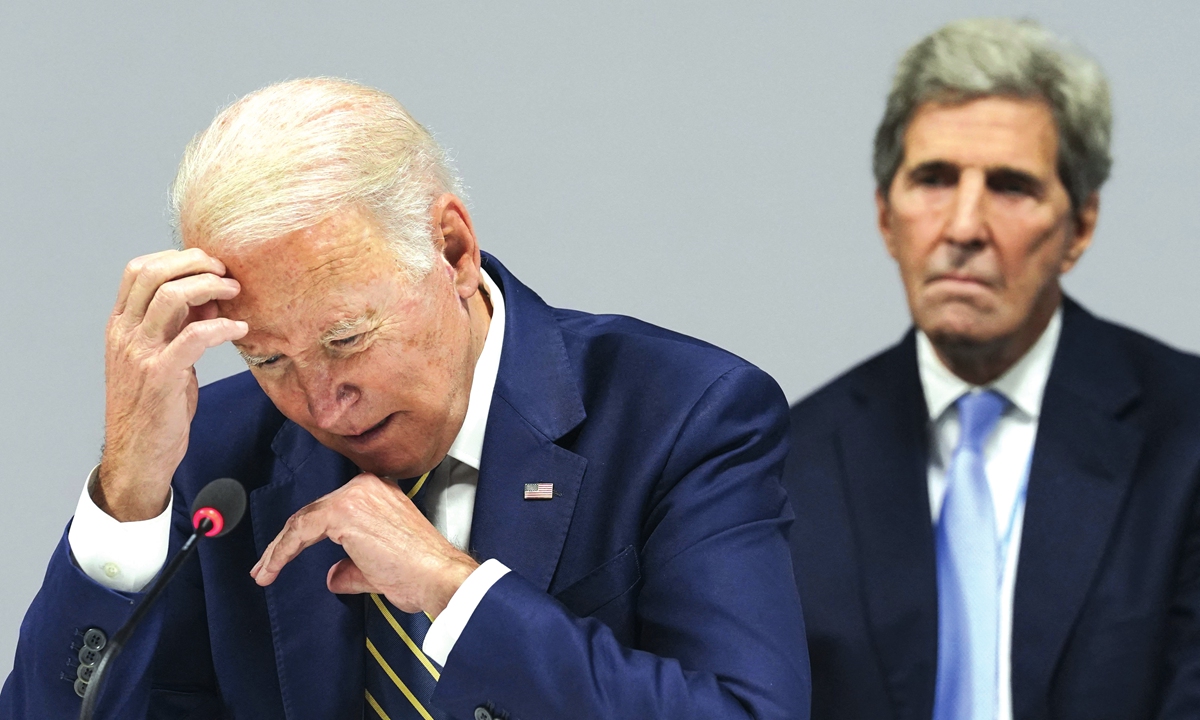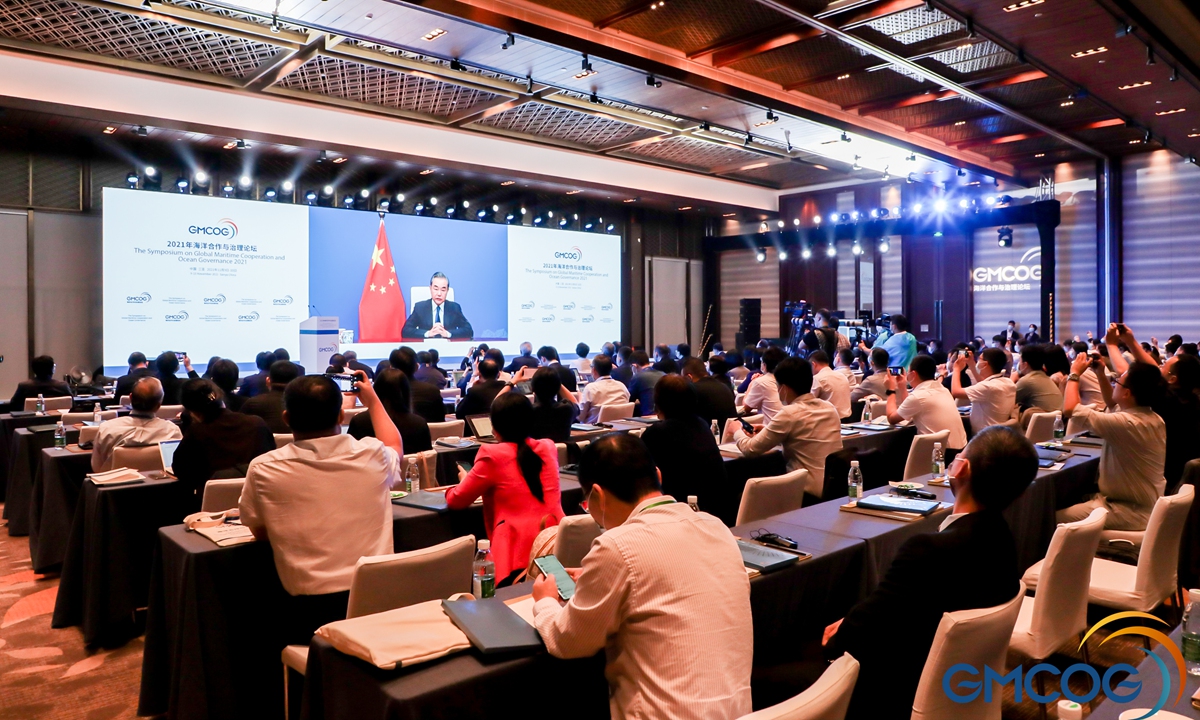United States and China, the world's two largest emitters of carbon dioxide, unveiled a deal to ramp up cooperation tackling the climate crisis. US climate envoy John Kerry and his Chinese counterpart Xie Zhenhua announced the framework agreement at the UN climate conference in Scotland. Both billed it as way to tip the summit toward success. 'In the area of climate change', Xie Zhenhua said. 'There is more agreement between China and the US than divergence, making it an area with huge potential for cooperation'.
How The U.S. Fell Behind China In The Fight Against Climate Change
Ever since President Trump withdrew the U.S. from the Paris Agreement, China has played an increasingly large role in the international fight against climate change. The country is now the world’s largest manufacturer of solar panels, lithium ion batteries, and electric vehicles. But while China has stepped up in these regards, it is still the global leader in carbon emissions, and burns more coal than the rest of the world combined. As President-elect Joe Biden looks to reassert American leadership in green energy and climate initiatives, it remains to be seen whether the U.S. and China can work collaboratively to address the climate crisis.
CORRECTION (November 16, 2020): Barbara Finamore and Alvin Lin both work at the “Natural Resources Defense Council” not the “National Resources Defense Council”
China's War on Pollution
China-US Glasgow declaration ‘key step in the right direction’ on global climate actions, prevents decoupling worst scenario
 China's Special Envoy for Climate Change, Xie Zhenhua speaks during a joint China and US statement on a declaration enhancing climate action during the COP26 climate change conference in Glasgow on November 10. Photo: AFP
China's Special Envoy for Climate Change, Xie Zhenhua speaks during a joint China and US statement on a declaration enhancing climate action during the COP26 climate change conference in Glasgow on November 10. Photo: AFP
China and the US released a joint declaration on tackling climate change during the ongoing COP26 in Glasgow, including setting up a working group and reducing methane and CO2 emissions. Officials and analysts said the declaration highlighted that China-US cooperation is the only right choice, noting it is a significant move on global climate actions and also sends strong positive signals for the success of the COP26.
China and the US on Wednesday released the China-US Joint Glasgow Declaration on Enhancing Climate Action in the 2020s. The two sides said they appreciated the work done so far and pledged to continue working together and with all parties to strengthen the implementation of the Paris Agreement. On the basis of the principle of common but differentiated responsibilities and respective capabilities as well as taking into account national conditions, enhanced climate action will be taken to effectively address the climate crisis.
The two sides agreed to establish a working group on enhancing climate action in the 2020s to promote cooperation on climate change between the two countries and the multilateral processes.
They reiterated they will observe the Paris climate agreement to keep temperatures below two degrees and to pursue efforts to limit it to 1.5 degrees.
On cooperation of reducing emissions of methane, the two countries intend to develop additional measures to enhance methane emission control, at both national and sub-national levels. China intends to develop a comprehensive and strong national action plan on methane, aiming to achieve a significant effect on methane emissions control and reductions in the 2020s.
On reducing CO2 emissions, the two agreed to cooperate on distributed generation policies that encourage integration of solar, storage, and other clean power solutions closer to electricity users. China will phase down coal consumption during the 15th Five Year Plan(2026-30)and make best efforts to accelerate this work.
Xie Zhenhua, China's Special Envoy for Climate Change, said on the release of the declaration that it once again shows that China-US cooperation is the only right choice, and that China and the US have more consensus than differences on climate change. Together, China and the US can accomplish many things that can benefit both countries and the world. China and the US should shoulder major responsibilities and follow the trend of the world, Xie said, jiemian.com reported.
He said he wished the declaration will contribute to the success of the COP26 as negotiations are still ongoing.
Setting up the working group was to institutionalize the China-US cooperation mechanism on climate change, and make joint actions more practical, Xie said, noting that the working group plans to have their first meeting in the first half of next year.
UN Secretary-General Antonio Guterres tweeted that he welcomed the agreement between China and the US to work together to take more ambitious climate action in this decade. "Tackling the climate crisis requires international collaboration and solidarity, and this is an important step in the right direction," he said.
Chinese experts considered the declaration between China and the US,two largest emitters, as a significant move in helping the globe battle climate change, with concrete progress made on how to advance the working mechanism on cooperation in handling climate change and stepping up efforts in boosting financial support for developing countries.
"It's crucial for China and the US to work together. No matter the target is 1.5 C or 2 C, the target can only be achieved with the joint efforts of the two countries," Lin Boqiang, director of the China Center for Energy Economics Research at Xiamen University, told the Global Times on Thursday.
Lin highlighted the progress in the latest consensus reached by China and the US including stepping up efforts on $100 billion pledges by developed countries to developing countries from 2020 to 2025 in order to achieve the climate change targets and also setting up a working group on enhancing climate action in the 2020s. "Frequent communication on handling the climate change is a crucial part of global efforts," he said.
Li Shuo, Senior Policy Advisor at Greenpeace East Asia, told the Global Times on Thursday that the declaration served the background of the reported upcoming leaders' summit between the two countries and created cooperative atmosphere for the two countries' further communication on climate change.
It has prevented the worst scenario of China-US decoupling on climate actions, Li said.
Xu Huaqing, a senior adviser of the Chinese delegation to COP26, told the Global Times that China has taken an active part in leading global climate governance, and also played an important historic role in facilitating the formulation of rules for the Paris Agreement through the diplomacy of the heads of state of China, the US and the EU. China looks forward to further strengthening dialogue and cooperation with the US and the EU, and working with other parties to strengthen the implementation of the Paris Agreement.
To achieve the long-term goals set in the Paris Agreement, developed countries should first take the lead in deepening emission reduction, which is the key to achieving global net zero emissions at an early date. The key to the international community's ambition lies in the need for countries to take strong concrete actions rather than empty slogans, Xu said.
Regarding the expected goals of the COP26, Xu said he believes that it is particularly important to form a consensus on some aspects, including finishing the talks on the implementation rules of the Paris Agreement, and making concrete progress on financial and technology support for developing countries.
For a long time, no effective progress has been made in funding, technology and capacity building support, which is of great concern to developing countries. As the Paris Agreement officially enters the implementation phase, these issues are related to political mutual trust and climate action by developing countries, Xu said.
He noted that the COP26 should also make clear arrangements for those matters in order to balance the financial support and adaption to climate ambitions, while also advocating countries to transform their goals into implemented policies and specific actions in order to avoid turning those promises into empty slogans.













